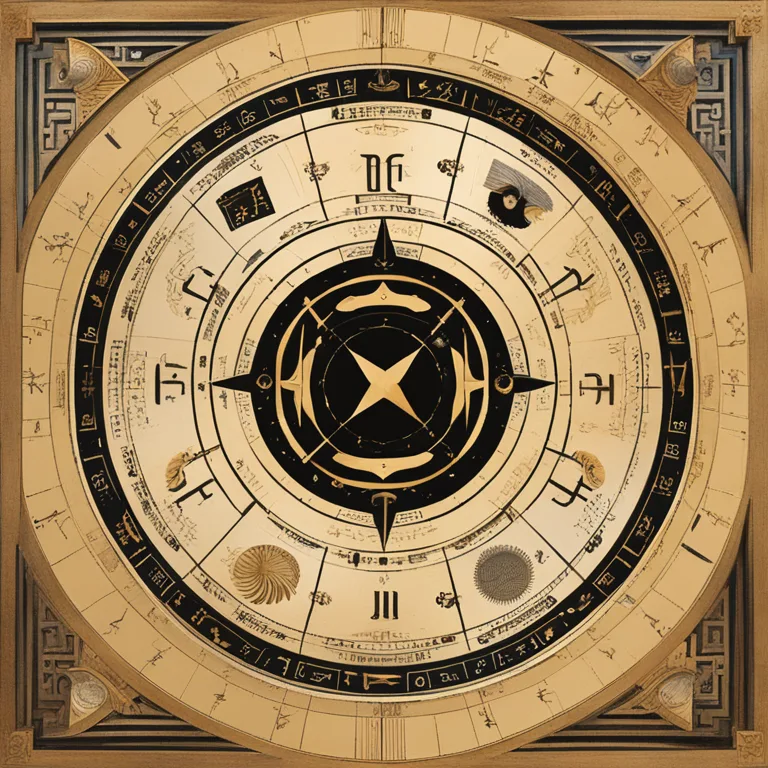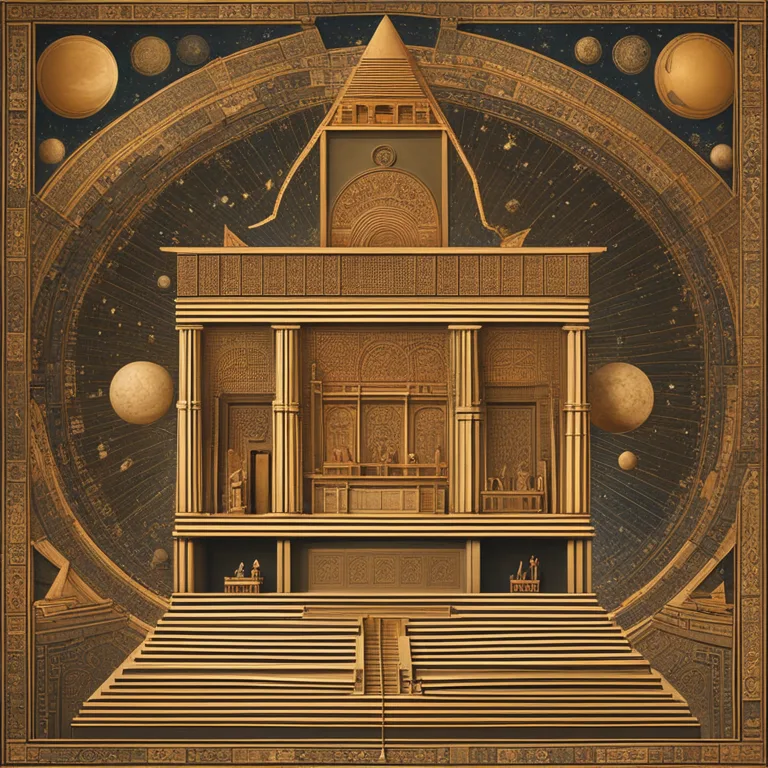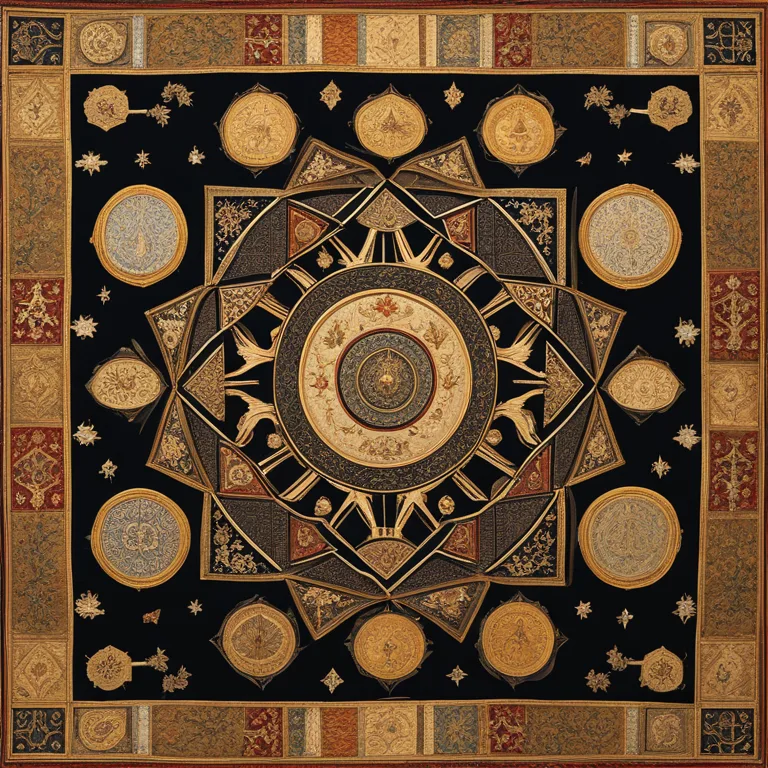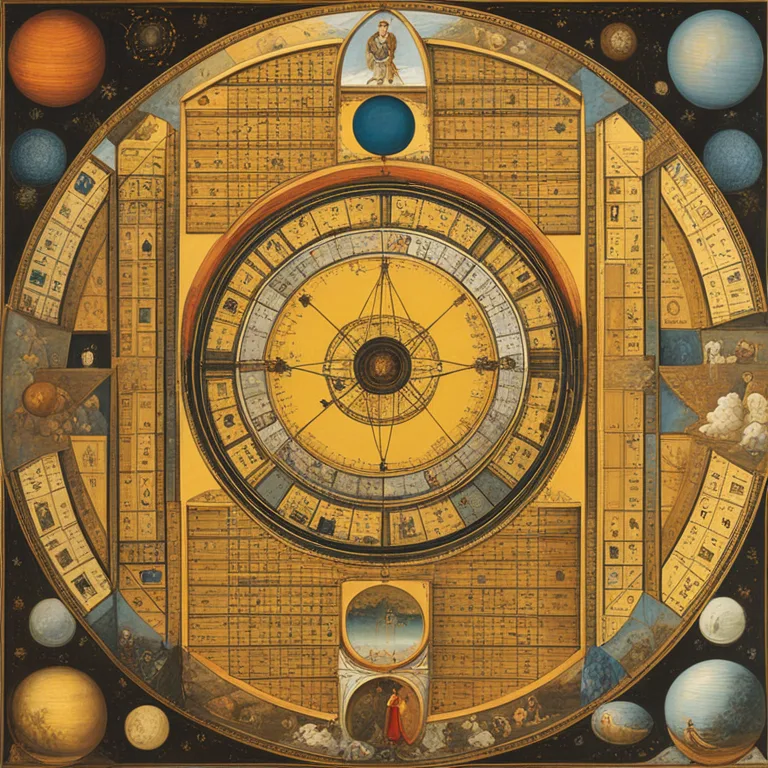
A Journey Through Astrology's Past
Trace the ancient roots and evolution of astrology through time in our concise historical exploration of this intriguing discipline.
article by Priya Deshmukh
Ancestral Beginnings
While the exact origin of astrology is difficult to pinpoint, its practice dates back thousands of years. Ancient civilizations, such as the Babylonians, are credited with the earliest forms of astrology. They used celestial patterns to predict seasonal changes and interpret celestial events as divine communications. The horoscopic astrology we recognize today, which uses a zodiac system divided into twelve signs, is a legacy of this bygone era. Babylonian wisdom passed to other cultures, cementing astrology's position in human history.

Hellenistic Influences
Astrology underwent a significant transformation during the Hellenistic period after Alexander the Great's conquests amalgamated Eastern and Western cultures. The Greeks inherited Babylonian astrological knowledge and fused it with their own philosophical traditions. This resulted in the creation of the tropical zodiac, based on the seasons rather than constellations, and the birth horoscope, mapping the sky at one's birth moment. This period also saw the rise of the zodiac as a predictor of individual destinies, a core belief in modern astrology.

The Medieval & Renaissance Shift
Advancing into the Middle Ages, astrology flourished across the Islamic world. Islamic scholars not only preserved classical texts but expanded upon them, with significant contributions from philosophers like Avicenna and Albumasar. These works would later be translated into Latin, sparking a resurgence in Western Europe during the Renaissance. Astrology was highly interwoven with medicine, politics, and daily life, as scientists and astrologers were often one and the same, like the famed astronomer-astrologer Johannes Kepler.

Enlightenment to Present Day
The Enlightenment brought rigorous scientific methods that cast shadows of skepticism over astrology. The distinction between the empirical nature of astronomy and the interpretative nature of astrology became more pronounced. However, the 20th century saw a revival of interest in astrology, tied closely to the New Age movement and psychological interpretations, attributing astrological signs to personality traits. Websites and digital apps have democratized access to astrological forecasts and horoscopes, including insights for 2024 and beyond.

Contemporary Astrology
Today's astrology harmonizes ancient traditions with modern sensibilities. Future-facing astrologers are crafting horoscopes that resonate with the current era, looking at planetary transits in years like 2024 to glean insights. The community continues to evolve, embracing new planets and celestial objects, like Chiron and Eris, while exploring synastry for insights into relationship dynamics. Digital platforms enable real-time updates for astrology adherents seeking guidance for their daily lives.
Conclusion: Astrology's Resilience
Astrology's history is a testament to its resilience and capacity to adapt to cultural shifts. From ancient Babylonia to the internet age, it has consistently found relevance, providing a lens for humans to reflect on life's complexities. As we step into the future, the historical roots of astrology serve as a foundation for new explorations of the cosmos and the human experience.
Published: 12/29/2023
Modified: 12/29/2023
More predictions
Come back here soon to learn more about yourself and your future


Birth Chart: The Powerful Role of Jupiter
Explore the powerful role of Jupiter in astrology and its profound impact on our personal growth, luck, and life philosophy in the birth chart.


Asteroids & A Birth Chart: Cosmic Insights
Delve into the role of asteroids in astrology and discover how these celestial bodies influence your birth chart and personal journey.


Birth Chart & Predicting Marriage
Discover the potential of birth charts in forecasting matrimonial bliss and partnerships, with a cosmic lens on future commitments.